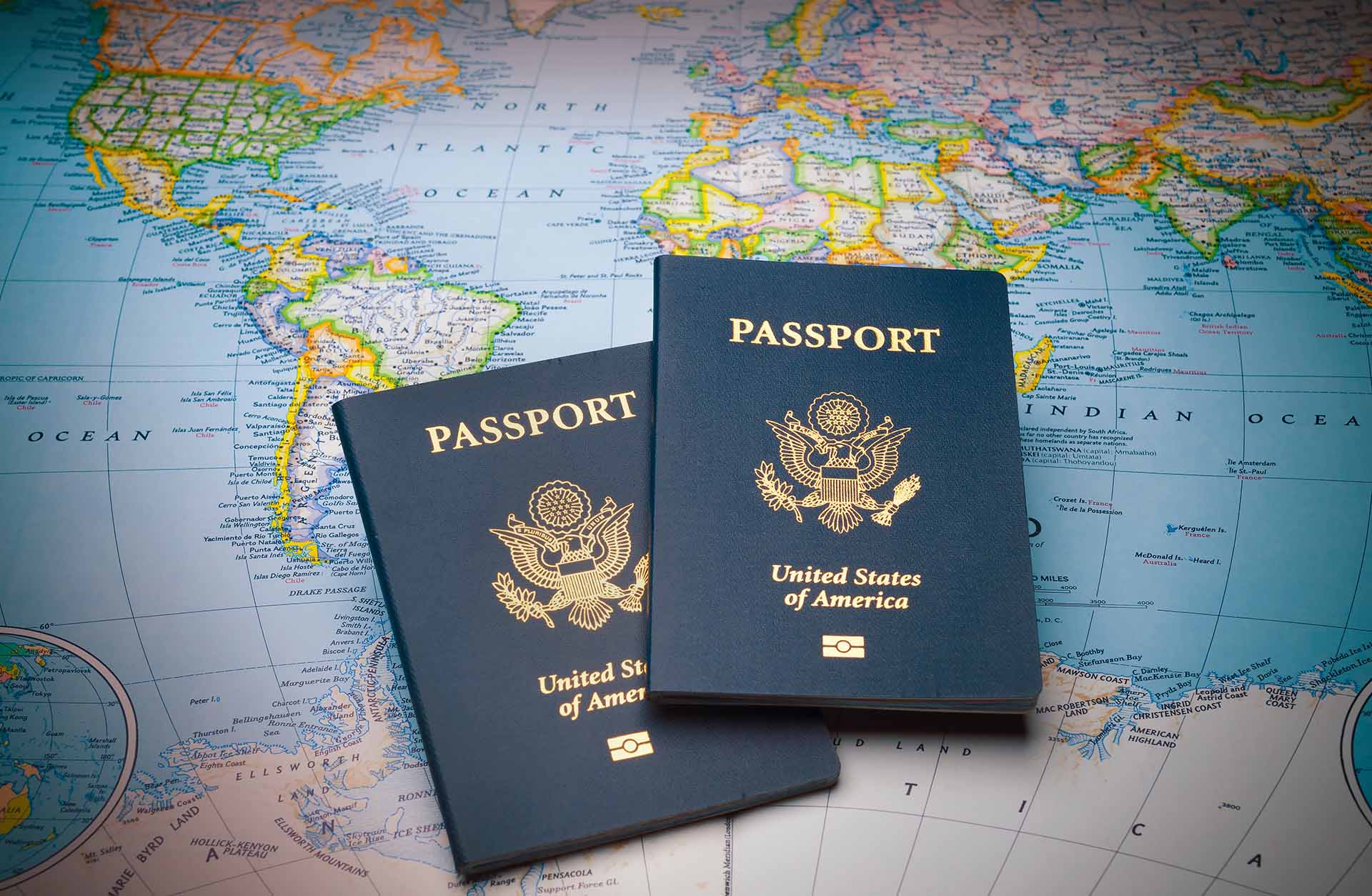Did you decide to change your current place of living? Packing to move and where to start with it is probably the first thing that comes to your mind after you choose to relocate. Before you begin packing, you should know that boxing up all of your belongings is not an easy task, and it will take time. Here’s a list of things that should make the moving overseas easier for you.
Start with creating an effective packing timeline to organize your belongings efficiently. Whether you’re a first-time mover or looking to improve your packing techniques, this blog offers the insights you need to kickstart your journey confidently.
How Do You Start Packing Before Moving Day – Make a Checklist
When organizing an overseas relocation, it’s important to know your priorities. For example, the first thing you need to do is book a reliable international moving company. However, neglecting the second most important thing – packaging your possessions – can cause much more relocation stress than you thought.
First of all, you should make a moving checklist that will help you with dozens of moving-related tasks that you have to complete. It will also give you a day-to-day schedule and provide you with a much-needed time frame. Just keep in mind that some of the tasks can be more urgent than others, so act accordingly.
Organize and Schedule Your Wrapping Tasks
Begin by categorizing your belongings into groups such as essentials, valuables, and large items. For each category, make detailed lists of what needs to be packed, considering the specific needs for their shipping overseas. Include a timeline for each packing phase, highlighting deadlines for completing tasks like securing the right materials, labeling boxes, and handling fragile items. Additionally, assign tasks to household members if applicable, to distribute the workload evenly.

It’s the Perfect Chance to Declutter
How do you declutter when you are getting ready to relocate? Living in one place for a while allows you to collect and hoard items, making the decluttering process necessary. The first thing you should do is decide what will and what will not be moving with you. You should keep in mind that packing up things that you won’t be using when you change homes is pointless. It takes the time of your day and it adds up to the total cost of relocating.
Keep in mind that the more you declutter the better. Go through each room, evaluate the belongings you haven’t used in a while, and decide if you really need them. When was the last time you actually used them? When you sort out the things you don’t use or don’t need anymore, you can donate them, sell them, or even give them to your friends. That way, you will give them a new purpose.
What to Put in Storage?
Keep in mind that if your move is temporary, unnecessary things can be put in storage. No matter what the answer is, you should make sure that you decide what stays in a storage unit, and what goes before you actually begin packing. Luckily, I Love International Moving has top-notch storage solutions for you that will keep your belongings safe and it’s completely free for 30 days!
Share Boxes and Save Some Money
Wrapping up your belongings and relocating across the world can cost a lot of money, so, understandably, you are looking for a way to cut down expenses. And there is no better way of doing that than to acquire free boxes. You can find them on Craigslist, or by asking friends and family if they have some.
If you live in a big city, there’s a good chance that there is a liquor store in your neighborhood, so don’t be afraid to ask if they have any free boxes. The same goes for local groceries. Recycling centers are the perfect places to find boxes as well, and you can always bring them back when you are done, so someone else might use them in the future.

A Professional Overseas Moving Company – A Friend in Need
Before you actually begin putting your items in boxes, you need to find a trustworthy overseas shipping company. That is one of the most important pieces of the relocation puzzle, so don’t leave it until the end of the process. Find international movers that suit your needs and budget.
Estimate Your Move
Make sure that when you get an estimate of your relocation, it doesn’t come with hidden fees or charges. Too many factors go into calculating the cost of transport. That’s why companies offer either a phone interview or even better, an in-home estimate.

What Not to Pack in Boxes When Moving Internationally
After carefully choosing what not to take with you, you should know what stuff you shouldn’t pack because moving companies won’t transport them or they won’t guarantee them.
- You should take your valuables with you, especially when it comes to important personal documents or items of sentimental value.
- Food is something you should avoid packing because it is prone to spoiling during transport and it can cause many problems from unpleasant smells to insects and mold.
- Don’t bring flammable stuff with you, for obvious health hazard reasons. These items should be disposed of in advance.
Be Aware of Items Professional Movers Can’t Move
One part of the wrapping process is figuring out what shipping companies can’t transport. In fact, there’s a list of items that they consider non-allowable when it comes to shipping. The usual things that are found on those lists are:
- Car batteries,
- Ammunition,
- Weapons,
- Fireworks,
- Cleaning supplies and bleach,
- Disinfectants,
- Acids, chemicals, and pesticides.

Start Wrapping Up Your Belongings
When you decide on movers and check off your list, you should start putting items in boxes. But is there a right way of packing your things? There might be a way to prioritize a group of items.
- You should pack out-of-season clothes first since you won’t be needing them at the moment. Plus, these belongings may have already been in boxes somewhere deep in your closet.
- Packing up rarely-used dishes and china comes next since you won’t be throwing a large fancy party while in the home-switching process. When it comes to dishes, make sure you label the boxes as fragile.
- Artwork, picture frames, and wall hangings can be tricky, but they are items you won’t be needing while relocating.
- While you are finishing up some non-packing related tasks, you could always gather small items scattered all over your home.
- Extra towels and linens are perfect belongings to pack since the move is not the ideal time to pile dirty towels. You should consider using a few dishes and bath towels and packing the rest up.
- Choose a few books you want to keep easily accessible and pack the rest. Make sure to return borrowed books.

Additional Wrapping Tips for Seamless Relocation
Whether you’re handling delicate glassware or bulky furniture, these additional tips will equip you with the knowledge to wrap and secure your items like a professional. It will make your relocation easier and stress-free.
While packing, make sure that you label your boxes. That will save you time when you begin to unpack in the new home.
You should write on top and sides of the boxes which room they belong to, and point out if the box contains “fragile” content. Make sure to properly wrap fragile possessions in several layers of bubble wrap and tape stray items together into a bundle. Also, if you run out of bubble wrap, things like towels, linens, and pillows can be used to keep fragile belongings safe.
Taking inventory is beneficial on so many levels. If your boxes get lost, you can easily identify them and the stuff they contain. Insurance companies appreciate that kind of detail.
Use All the Help You Can Get From a Professional Moving Company
Hopefully, these tips will help you the next time you decide to move and they’ll aid you in managing your budget. Entrusting your move to professionals ensures that every aspect, from packing to transportation, is managed seamlessly, allowing you to focus on settling into your new home with peace of mind. If you choose to hire professionals for the move, keep in mind that I Love International Moving is among the best movers in the business. Contact us and get a free quote for your next overseas relocation.












